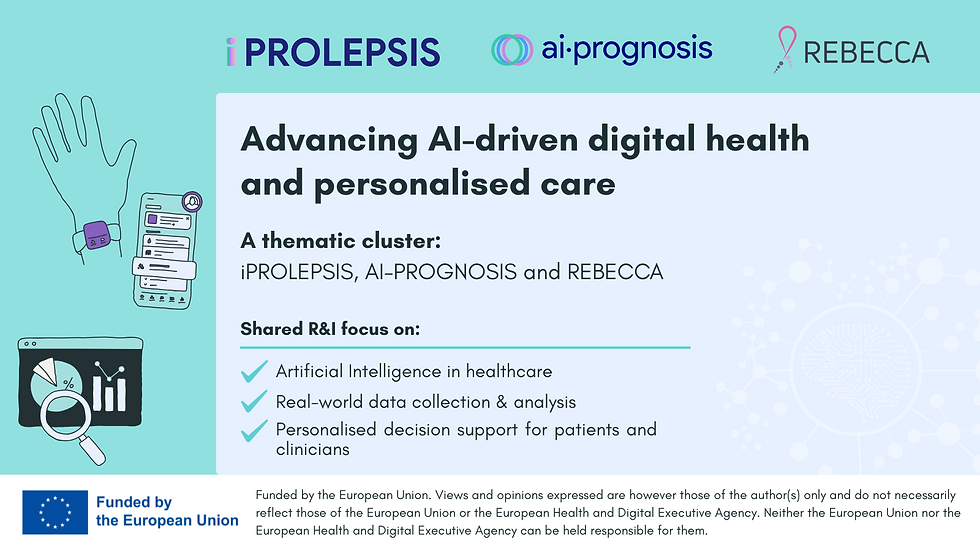17 jul 2025
Three EU-funded projects exploring real-world data, wearables, and personalised care in healthcare innovation
Have you ever asked yourself how to make AI really effective along the patient journey? That was one of the first questions we asked ourselves when we launched our project. Along the way, we discovered we weren’t alone – many other research initiatives working with AI in healthcare were asking the same thing.
That’s why we decided to take a step forward and create a cluster: a concrete way to collaborate, foster the impact of our solutions, and improve them through scientific exchange and an open science approach.
AI-PROGNOSIS, iPROLEPSIS, and REBECCA – three EU-funded projects to advance patient-centric AI in healthcare.
Focusing on Parkinson’s disease (PD), AI-PROGNOSIS is developing a suite of AI-powered tools for both patients and clinicians. These include early risk assessment, symptom monitoring, and medication support – based on real-world data from wearables and patient self-reports. It’s about enabling timely, data-driven decisions and bringing predictive analytics to the heart of primary care.
iPROLEPSIS is building a comprehensive digital health ecosystem for psoriatic arthritis (PsA). It brings together a multisource biobank, a smartphone-based app powered by digital biomarkers and AI-driven predictive models, and an intervention module featuring therapeutic games, lifestyle coaching, and sleep support. The goal? To reshape the way we monitor and treat chronic inflammatory diseases through personalised mobile health solutions.
Finally, REBECCA is working to improve long-term care for breast cancer survivors. By combining electronic health records with data from wearables and behaviour tracking, it generates real-world evidence on patients’ emotional, functional, and quality-of-life needs. Its explainable AI platform also supports caregivers and families via a dedicated app, empowering a more holistic approach to survivorship.
What will we do together?
We aim to contribute to the discussion on how AI-based digital health can support medical decision-making and real-time monitoring within daily hospital routines.
Integrating AI into clinical practice is no easy task. Our solutions are designed to enable real-time health monitoring, informed decision-making, and disease management by leveraging biometric, behavioral, and clinical data –maximizing the impact along the patient journey.
Another area of strong interest is the development of digital infrastructures that integrate wearable, clinical, behavioral, and environmental datasets. We believe these can be analyzed collectively through AI to generate real-world evidence and support both predictive and causal modeling – helping to guide research and inform treatment planning in more meaningful ways.

